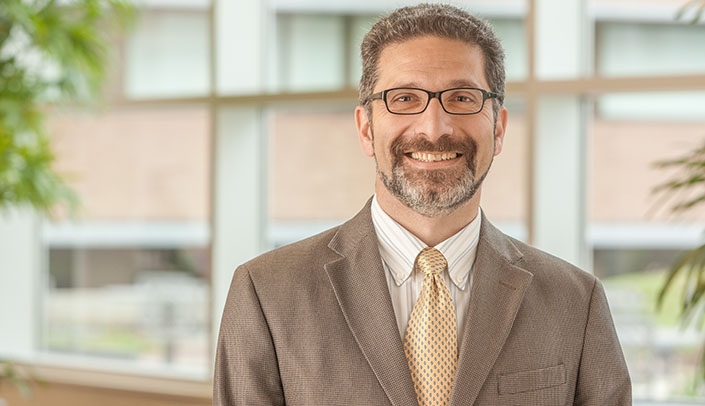UNMC/Nebraska Medicine infectious disease physician Andre Kalil, M.D., is one of the authors of a major scientific study on the results of the drug remdesivir, used to treat patients hospitalized with coronavirus
The study was published in a recent issue of the New England Journal of Medicine, a leading scientific medical journal. The preliminary results about the study were released in late April, by an independent data and safety monitoring board overseeing the trial, while the study was still ongoing because of the implications for patients in the study and for public health.
Published scientific studies serve as a foundation to advance medical discoveries and provide a treatment guide for physicians.
Dr. Kalil led the study at UNMC where the first study participant in the United States was enrolled — a study that began Feb. 21 and subsequently enrolled 1,063 participants in 10 countries.
The randomized, double-blind study, published May 22, found patients who were given remdesivir had a significant faster recovery time than those who received placebo and a trend to improved survival. The median time to recovery was 11 days for patients treated with remdesivir compared with 15 days for those who received placebo.
“This is not a cure, but it can make people get better sooner and survive,” Dr. Kalil said. “We still have work to do.”
Researchers also reported a survival benefit, with a 14-day mortality rate of 7.1% for the group receiving remdesivir versus 11.9% for the placebo group; however, the difference in mortality was not statistically significant.
The study analyzed hospitalized adults with COVID-19 with moderate to severe disease. Investigators found that remdesivir was most beneficial for hospitalized patients with severe disease who required supplemental oxygen.
The study compared 538 patients who received a 10-day course of intravenous, antiviral remdesivir drug developed by Gilead Sciences, Inc., to 521 patients who received standard, supportive care and placebo.
Dr. Kalil said because the medication shortens the disease duration, it’s shortening time spent in the hospital.
“The medication shortens the duration of the time it takes to recover by about 30-40%, so some patients end up four to six days less in the hospital, requiring less oxygen or less mechanical ventilation, and four to six days is an eternity when you’re really sick,” said Dr. Kalil. He added there are 300 more patients’ data to be analyzed from the study (currently data on 75 percent of patients has been analyzed).
The study, “Adaptive COVID-19 Treatment Trial (ACTT),” was funded by the National Institute of Allergy and Infectious Diseases (NIAID).

Way to go Andre!!!! Thank you for leadership and contribution to this critically important scientific effort.